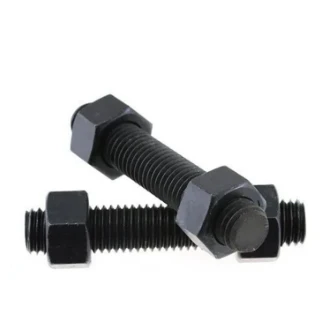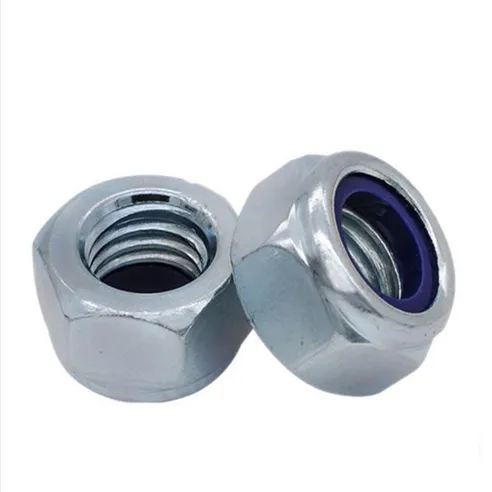pinch bolts
فبراير . 16, 2025 14:34 Back to list
pinch bolts
Understanding the critical role of pinch bolts in various mechanical and engineering applications ensures a safe and efficient connection of components. Pinch bolts are commonly used in automotive, bicycle, and industrial machinery assemblies. Their primary purpose is to securely fasten two or more parts, employing clamping forces that prevent movement under stress or vibration. Knowing how to properly select and maintain pinch bolts is essential for anyone dealing with mechanical assemblies.
Installation of pinch bolts requires attention to torque settings. Over-tightening can strip threads or deform components, while under-tightening can result in ineffective clamping forces. Employing a torque wrench is advisable to apply the recommended torque specified by manufacturers. It's essential to cross-check the manufacturer’s torque specifications frequently, as variations in materials and designs can influence these recommendations. The role of pinch bolts in ensuring safety cannot be overstated. In automotive applications, for instance, these bolts are critical in securing suspension components, which directly affect handling and stability. Similarly, in bicycles, pinch bolts maintain the position of the seat post and handlebars, ensuring rider safety. In industrial settings, they keep heavy machinery parts aligned and secure, preventing accidents and machinery damage. Regardless of the application, routine inspection and maintenance of pinch bolts are necessary to ensure longevity and performance. Over time, mechanical stress, vibration, and environmental factors can cause bolts to loosen. Regular checks should be part of any maintenance schedule, with particular focus after high-stress events such as heavy usage or exposure to harsh conditions. Employing anti-seize compounds on the threads can also prevent seizing, making future adjustments or disassembly easier. In summary, pinch bolts serve as a critical component in many fastening applications, emphasizing the importance of selecting the right type, material, and specifications. An understanding of proper installation techniques, torque settings, and maintenance regimes enhances safety and efficiency. By leveraging product specifications and manufacturer recommendations, as well as consulting with experts, you ensure that the pinch bolts provide reliable and lasting performance, fundamentally safeguarding both human safety and the integrity of machinery. An expertise-driven approach to managing pinch bolts guarantees not only operational success but also durability, underscoring the bolt's essential role in diverse engineering contexts.


Installation of pinch bolts requires attention to torque settings. Over-tightening can strip threads or deform components, while under-tightening can result in ineffective clamping forces. Employing a torque wrench is advisable to apply the recommended torque specified by manufacturers. It's essential to cross-check the manufacturer’s torque specifications frequently, as variations in materials and designs can influence these recommendations. The role of pinch bolts in ensuring safety cannot be overstated. In automotive applications, for instance, these bolts are critical in securing suspension components, which directly affect handling and stability. Similarly, in bicycles, pinch bolts maintain the position of the seat post and handlebars, ensuring rider safety. In industrial settings, they keep heavy machinery parts aligned and secure, preventing accidents and machinery damage. Regardless of the application, routine inspection and maintenance of pinch bolts are necessary to ensure longevity and performance. Over time, mechanical stress, vibration, and environmental factors can cause bolts to loosen. Regular checks should be part of any maintenance schedule, with particular focus after high-stress events such as heavy usage or exposure to harsh conditions. Employing anti-seize compounds on the threads can also prevent seizing, making future adjustments or disassembly easier. In summary, pinch bolts serve as a critical component in many fastening applications, emphasizing the importance of selecting the right type, material, and specifications. An understanding of proper installation techniques, torque settings, and maintenance regimes enhances safety and efficiency. By leveraging product specifications and manufacturer recommendations, as well as consulting with experts, you ensure that the pinch bolts provide reliable and lasting performance, fundamentally safeguarding both human safety and the integrity of machinery. An expertise-driven approach to managing pinch bolts guarantees not only operational success but also durability, underscoring the bolt's essential role in diverse engineering contexts.
Next:
Latest news
-
Trusted Wire Bolts Suppliers - Durable & Reliable Solutions
NewsAug.04,2025
-
Wire Bolts Company | Premium Industrial Fasteners
NewsAug.03,2025
-
Top Wire Bolts Suppliers | AI-Optimized Fast Delivery
NewsAug.02,2025
-
Top Metric Wood Screw Companies | Durable & Reliable
NewsAug.01,2025
-
Premium Lawn Mower Handle Bolts Supplier | Fast Delivery
NewsJul.31,2025
-
Premium Silver Screws Supplier | High-Conductivity Fasteners
NewsJul.31,2025
